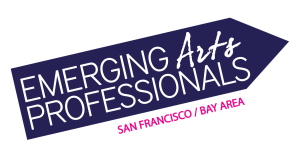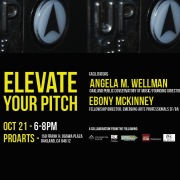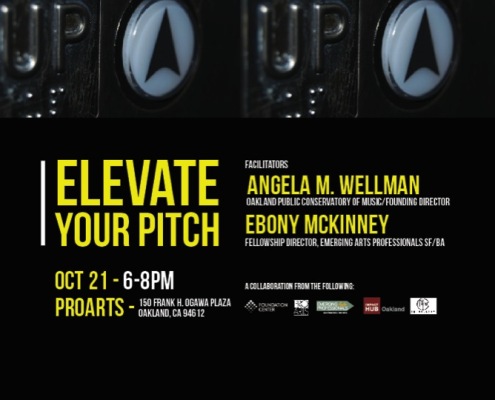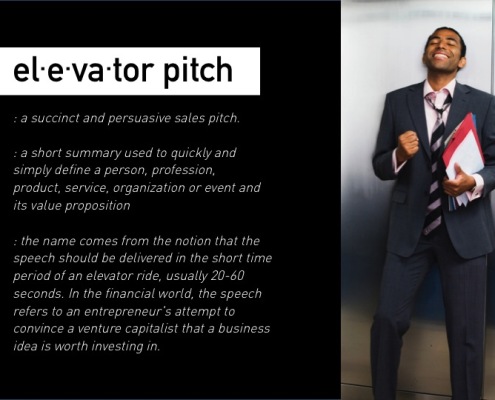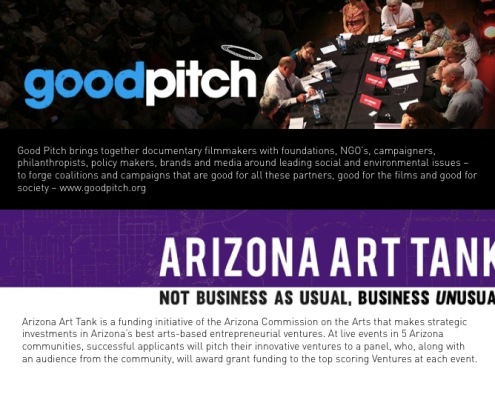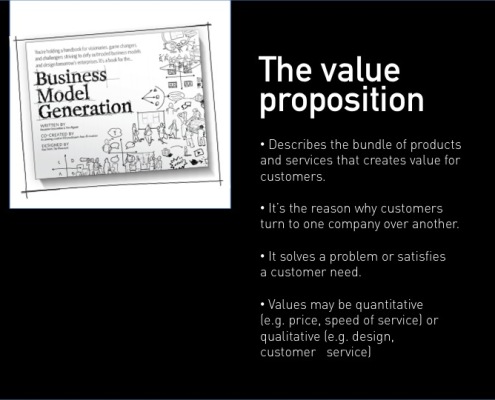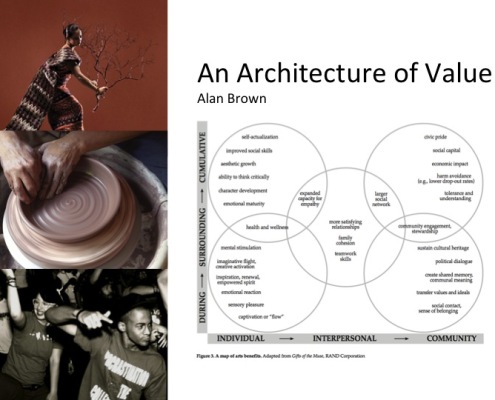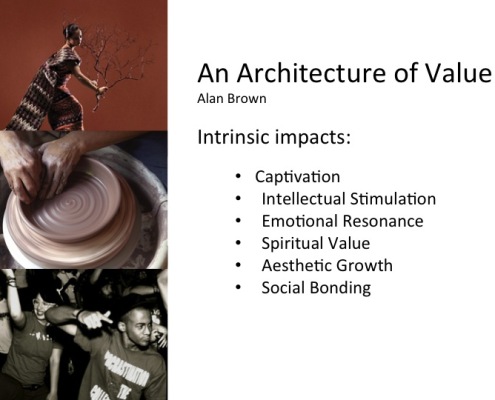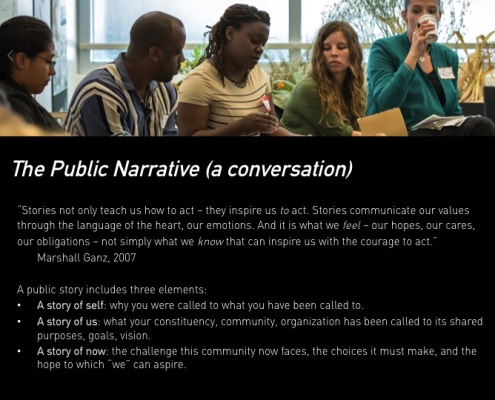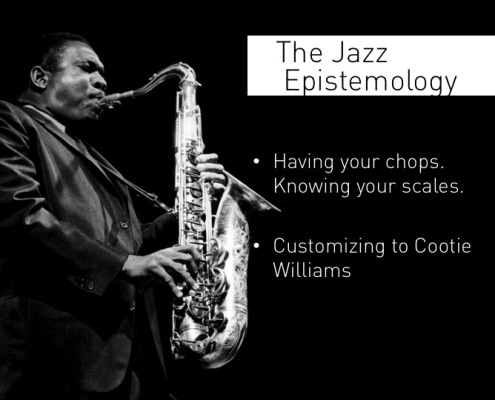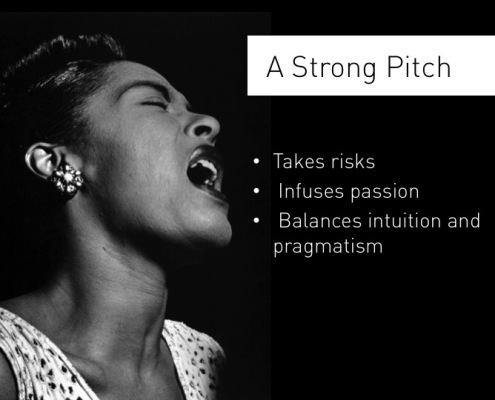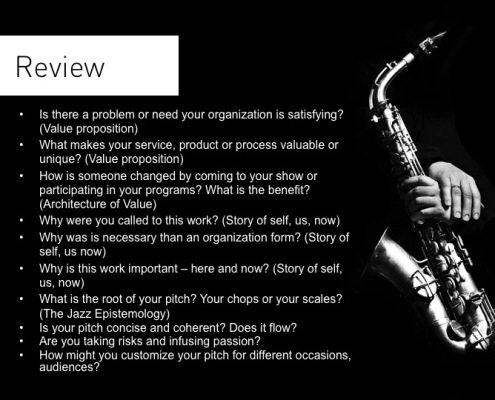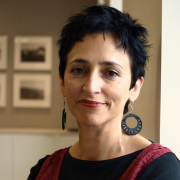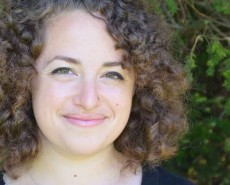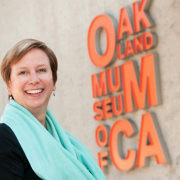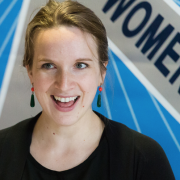Elevate Your Pitch – Event Recap
Creatives gathered at Pro Arts on Tuesday Oct 21st for the Elevate Your Pitch Workshop. The goal of the workshop was for participants to practice and improve upon their pitches, whether that meant a solo artist applying for gallery representation or a theater start-up organization pitching to investors.
Participants included, independent visual artists, performers, Theater Interns, and others working in the arts; as they entered the gallery they were introduced to the evening with a visual name game. Everyone was asked to illustrate the meaning/story of their name and to present that story to the group. The ulterior motive to this name game, later disclosed by the facilitators, was to get us all engaged in telling a brief story, one that we knew off the tops of our heads and felt deep passion or connection to.
This exercise led to a brief presentation on broader ways to look at our own pitches. Workshop co-facilitator Ebony McKinney, Independent Consultant and Fellowship Director of Emerging Arts Professionals of the SF Bay Area, touched on the nuanced differences between the business/venture capital and cultural/art uses of The Pitch. Particularly she referenced Alan Brown’s “Architecture of Value” diagram as a compelling resource that dissect the levels of impact arts and cultural workers have on those around them. Ebony also introduced the ideas of Marshall Ganz, as a framework for pitches that tell the Story of Self, the Story of Us and the Story of Now and challenged participants to make these stories a part of a public narrative by allowing The Pitch to be more than conversation starter.
Co-facilitator Angela M. Wellman, Founding Director of the Oakland Public Conservatory, told her own personal success story which included always “having your chops” together. As a jazz musician, she practiced scales on her own until the moment came for her to step in and play – being prepared to impress, she says, is one of the best things artists can do for themselves. In a casual yet genuine way, all attendees were able to discuss their individual pitches with the leaders and each other, helping develop delivery style and even the ideas themselves.
Bios
Angela M. Wellman, Oakland Public Conservatory of Music/Founding Director – Trombonist Angela Wellman, hailing proudly from Kansas City, Missouri, has performed with the McCoy Tyner Big Band, Joe Williams, Al Grey, Slide Hampton and other noted musicians. Raised in Kansas City, Missouri, Ms. Wellman was nurtured in a musical family, and is a third generation jazz musician and music educator. She grew up listening to the stride piano style of her grandfather, her father’s swinging ballad & blues piano, and the soul-stirring songstylings of her mother, Jyene Baker. Angela inherits her passion and understanding for the preservation of musical traditions through education from her uncle and mentor, Eddie B. Baker, Sr., founder of the Charlie Parker Memorial Foundation & Academy for Performing Arts and the International Jazz Hall of Fame. Angela’s initiation into the world of Jazz as a player began while hanging out at sessions at the famed chitlin’ circuit Local 626, the once–Black musicians’ union in Kansas City, and now sanctuary for the spirits of jazz pioneers such as Ernie Williams (The Last of the Blue Devils), Count Basie, Charlie Parker, and countless others who got their start in that very place.
In 2005 she founded the Oakland Public Conservatory of Music to provide high quality, affordable music education for Oakland citizens. Angela divides her time between Oakland and Madison, WI where she is pursuing doctoral studies in Education/Curriculum and Instruction at the University of Wisconsin. She also performs and teaches throughout the United States. Her band, New Roots, performs spirited, contemporary music, creating new forms, styles, and roots in the Jazz tradition.
Ebony McKinney, EAP Fellowship Director, Independent Consultant – Ebony has a diverse range of experience in non-profit, philanthropic and government organizations. McKinney served as the founding director of Emerging Arts Professionals/SFBA, a network focused on empowerment, leadership, and growth of next generation arts and culture workers in the San Francisco Bay Area and was instrumental in helping to establish the statewide California NextGen Arts Leadership Initiative funded by The James Irvine Foundation and The William and Flora Hewlett Foundation. She has held positions with Intersection for the Arts, the San Francisco Arts Commission and the Kely-Strayhorn Theater in Pittsburgh, Pennsylvania. McKinney has participated in grant review panels for the National Endowment for the Arts and the Oakland Cultural Affairs Commission and currently serves on the on the Citizen’s Advisory Committee of Grants for the Arts/San Francisco Hotel Tax Fund. Ebony holds a BA in Communications from Chatham College and MA’s in both Cultural Entrepreneurship and Visual Anthropology from Goldsmiths, University of London.
Co-Facilitated by: Angela M. Wellman, Oakland Public Conservatory of Music/Founding Director and Ebony McKinney, Independent Consultant & Fellowship Director, Emerging Arts Professionals SF/BA
Event Sponsors & Organizers:
Divya Balakrishnan, Administrative Gallery Coordinator, Pro Arts,
AJ Kiyoizumi, Curatorial Intern, Pro Arts,
Sarah Jo Neubauer, Capacity and Leadership Development Manager, Foundation Center-San Francisco
Ashara Ekundayo, Chief Creative Officer &OMI Gallery Director, Impact Hub Oakland
Katherin Canton, Network Coordinator, Emerging Arts Professionals/SFBA
